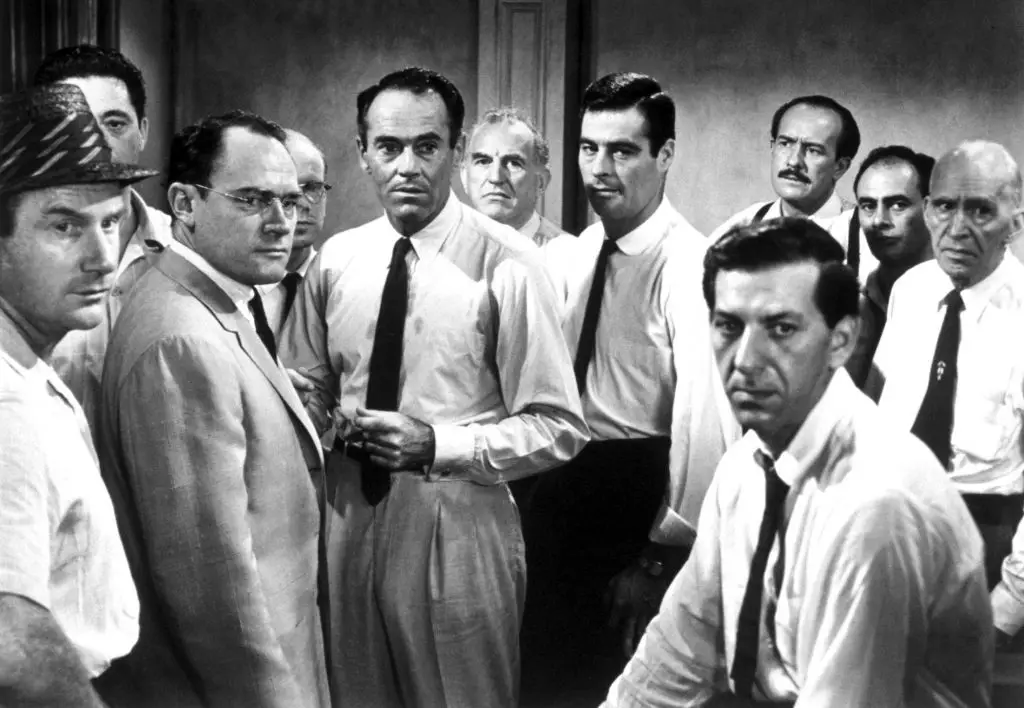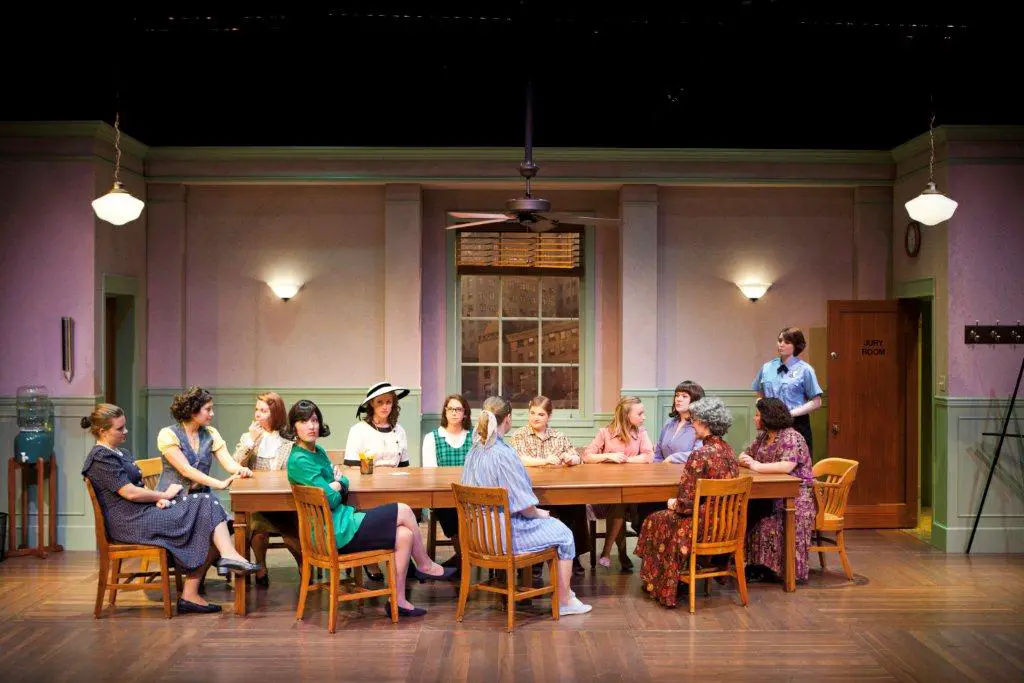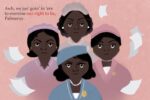In 1954, “Twelve Angry Men” made Reginald Rose one of the most popular American television writers. The teleplay, about how one juror managed to change the vote of eleven others in the case of a murder conviction, is based on a true story, showcased the value of the democratic process and encouraged society to question its own moral perspectives.
In order to understand how “Twelve Angry Men” affected Americans, it is important to consider the events taking place at the time. The United States was competing with the Soviet Union in the Cold War on economic, social and political levels. By showing how one juror could change the vote of eleven others despite their challenging attitudes, prejudices and behaviors, “Twelve Angry Men” showed the merits of democracy at a time when communism was ostensibly threatening the American way of life. In contrast to communist Soviet Union, the play seemed to suggest, the United States was better built for navigating the complexity of life.
On a more self-critical level, “Twelve Angry Men” also reflected Americans’ inability to live up to their own moral standards as a result of their prejudices. At the time, many white Americans physically and verbally abused blacks for insignificant reasons, if any at all, believing blacks were bad people simply for their skin color. Similarly, in “Twelve Angry Men,” the most staunchly racist jurors, until the end of the play, refused to vote against the accused boy’s acquittal because of his racial background and the poor neighborhood he grew up in, arguing, “You know how they are,” and “The children who grew up in slum backgrounds are potential menaces to society.” Their prejudice against the boy prevented them from seeing that he could be innocent and undeserving of the death penalty.

During the fifties, hardly anyone argued against black oppression for fear that the violent group of white oppressors would turn on them, and large groups taking part in the violent acts convinced many others it was acceptable. “Twelve Angry Men” portrayed these beliefs and their resulting unjust consequences, which allowed viewers to see, played out on stage, how irrational their biases led them to behave and caused audiences to question their own decision-making processes. It would not be a stretch to suggest that “Twelve Angry Men” contributed to the soon-to-come Civil Rights Movement.
Since then, “Twelve Angry Men” has been produced numerous times, not only in the United States, but overseas as well, proving its timelessness and universality; indeed, the play’s ability to unite audiences and provoke thought is evidenced by its sheer popularity. Once Rose adapted the teleplay for the stage, it was produced in London in 1964, and soon retitled “Twelve Angry Jurors,” to include both male and female characters. The second-largest London production ever followed in 1996, before the production finally made its way to Broadway in 2004. LA Theatre Works would go on to produce the play again in 2007, the Garrick Theatre would do so in London in November 2013 and Independent Theatre even debuted the show in Pakistan in 2014.
“Twelve Angry Women,” on the other hand, adapted by Sherman L. Sergel and published by Dramatic Publishing in 1983, is currently being produced by the AlphaNYC Theater Company and making the same profound statements today as it did over fifty years ago. The drama obviously suggests that women are as powerful as men, but it also picks up the idea of a diverse America and urges everyone to stand up for their beliefs, including when it’s most difficult. Nowadays, as the president unjustly insults various racial groups and women fight harder for equal rights as men, “Twelve Angry Women” could hardly be more poignant.
In the AlphaNYC Theater Company production, the audience watches the play in an intimate studio theater decorated with a large American flag upfront and center, and as the actresses debate the guilt or innocence of the young boy, it is hard not to think about the unique democratic process of the United States. The production reflects the American idea that all voices have an equal right to be heard under the law, and that the more diverse the makeup of those voices, the stronger the country will be. (Some casts are more diverse than others, but if you’re lucky enough to see a cast made up of different racial backgrounds, you’ll note the greater quality of the production.) Further, that they argue for what appears to be hours until they agree that the boy could very well be innocent proves that democracy, and the justice system, have the amazing ability to make right decision.
In an important distinction, though, one juror stands alone for a large part of the play and convinces, one by one, all the other jurors that there is a reasonable doubt, a facet of the script that not only comments on the mechanics of democracy, but also the agency of a motivated individual within the system. “Twelve Angry Women” encourages its audience to stand up for what they believe in by showing that one person is all it takes to make a difference. As one juror says, “It takes a lot of courage to stand alone,” but Juror #8, who changes the minds of even their most adamantly opposed co-jurors through a careful re-consideration of evidence, proved it is possible.
The title alone, “Twelve Angry Women,” also makes a feminist statement, with the near-election of the first woman president and the ongoing fight for equal pay to men in the workforce. Just as a racially diverse group is stronger than a homogenous one, a group of mixed genders and sexualities is also stronger than a unisex one. Women have the ability to make change through letting their voices be heard, just as the men do, and in the play, even the shyest characters do exactly that.
Overall, “Twelve Angry Women” is a reminder to keep fighting for equality. Rose attributed the success of the play to his own personal experience of serving on the jury for a murder trial. He once described the experience, saying, “I was on a jury for a manslaughter case, and we got into this terrific, furious, eight-hour argument in the jury room. I was writing one-hour dramas for ‘Studio One’ then, and I thought, wow, what a setting for a drama.” Boy was he right.

















